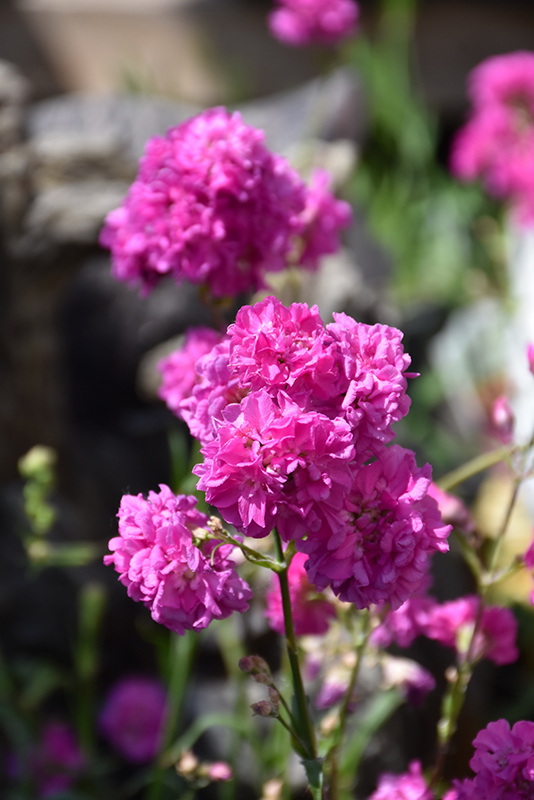Plant Finder
Passion German Catchfly
Lychnis viscaria 'Passion'
Plant Height: 16 inches
Flower Height: 24 inches
Spacing: 12 inches
Sunlight:
![]()
Hardiness Zone: 2b
Other Names: syn. Lychnis viscaria Splendens Plena, Campion
Description:
Native to Europe, this small grassy-like tufted-mound perennial produces stunning clusters of double, magenta-pink blooms; its upright habit makes this plant a spectacular addition to any rock or scree garden; deadhead to encourage prolonged flowering
Ornamental Features
Passion German Catchfly has masses of beautiful spikes of double fuchsia frilly flowers rising above the foliage from early to mid summer, which are most effective when planted in groupings. The flowers are excellent for cutting. Its ferny leaves remain forest green in color throughout the season.
Landscape Attributes
Passion German Catchfly is an open herbaceous perennial with tall flower stalks held atop a low mound of foliage. Its relatively fine texture sets it apart from other garden plants with less refined foliage.
This plant will require occasional maintenance and upkeep, and is best cleaned up in early spring before it resumes active growth for the season. It is a good choice for attracting butterflies to your yard, but is not particularly attractive to deer who tend to leave it alone in favor of tastier treats. It has no significant negative characteristics.
Passion German Catchfly is recommended for the following landscape applications;
- Mass Planting
- Rock/Alpine Gardens
- General Garden Use
- Naturalizing And Woodland Gardens
Planting & Growing
Passion German Catchfly will grow to be about 16 inches tall at maturity extending to 24 inches tall with the flowers, with a spread of 16 inches. When grown in masses or used as a bedding plant, individual plants should be spaced approximately 12 inches apart. It grows at a fast rate, and under ideal conditions can be expected to live for approximately 5 years. As an herbaceous perennial, this plant will usually die back to the crown each winter, and will regrow from the base each spring. Be careful not to disturb the crown in late winter when it may not be readily seen!
This plant should only be grown in full sunlight. It prefers to grow in average to moist conditions, and shouldn't be allowed to dry out. It is not particular as to soil type or pH. It is somewhat tolerant of urban pollution. This is a selected variety of a species not originally from North America. It can be propagated by division; however, as a cultivated variety, be aware that it may be subject to certain restrictions or prohibitions on propagation.




